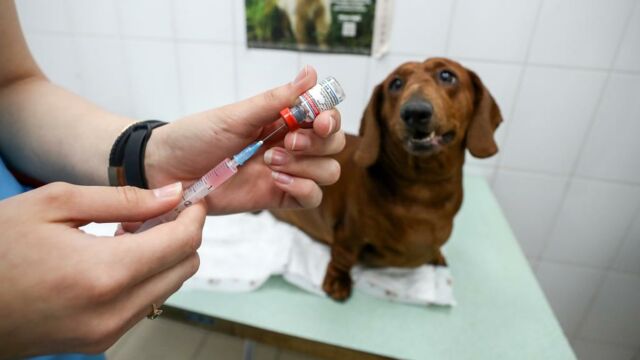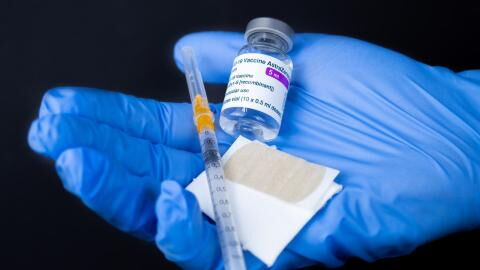Studies have recently shown that people can transmit COVID to their pets, potentially making their furry friend double as a reservoir for the virus.
Discover our latest podcast
Now, Labour is urging ministers to consider vaccinating pets after the human population has been sufficiently inoculated to reduce the risk of another potentially dangerous coronavirus mutation.
Labour’s Sir Mark Hendrick revealed to The Mirror: ‘Covid possibly started in bats. The priority is to vaccinate humans, but a year or so down the line, we have to look at animal vaccines.’
Kevin Tyler, the editor of journal Virulence, echoed Sir Hendrick’s sentiment, explaining that ‘mutations could come back into humans looking quite different.’
A substantially different variant could be a problem in the future. The best way to deal with that might be vaccines.
Russia has already begun vaccinating cats and dogs
Already ahead of the game, Russia began providing COVID vaccines to cats and dogs back in May. The Carnivac-Cov was explicitly developed for animals after reports found COVID antibodies in cats, dogs, foxes and minks.
Carnivac-Cov trials, which began in October last year, proved wildly successful with a 100% efficacy rate and at least six month’s protection. Just like human COVID jabs, Carnivac-Cov is also administered in two doses spaced 21 days apart.
US veterinary pharmaceutical company Zoetis Inc is also on its way to releasing a COVID vaccine for animals. Trails have already begun on a set of five orangutans and four bonobos at San Diego Zoo after an outbreak occurred amongst the zoo’s gorillas.
Is vaccinating animals really necessary?
Research has yet to confirm whether or not animals can transmit COVID to humans. But, given the controversy surrounding the pandemic’s origins, animal to human transmission is always a possibility.
The WHO research team, tasked with determining exactly how the COVID outbreak started, even believe that the virus may have been passed from bats to humans through other animals such as minks and raccoon dogs, which have also been found to carry coronavirus antibodies.
Deputy head of Rosselkhoznadzor - Russia’s agriculture watchdog - explained that animal vaccines could prevent further COVID mutations:
The use of the vaccine, according to Russian researchers, can prevent the development of viral mutations, which most often occur during interspecies transmission of the agent.
Looking beyond animal to human transmission, the virus has, on numerous accounts, been shown to transmit amongst animals - a tragedy that vaccinations could mitigate.
Back in 2020, Denmark experienced a COVID outbreak on mink farms, resulting in a cull of 17 million minks.
Additionally, COVID-19 outbreaks could put endangered and vulnerable species at risk. Zoos in the Bronx and Barcelona have reported cases of staff transmitting the virus to tigers and lions. A 17-year old tiger in Sweden and two rare white tiger cubs in Pakistan have already died from COVID infections.















